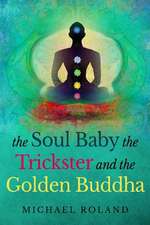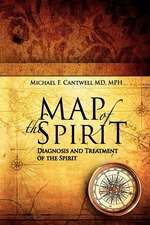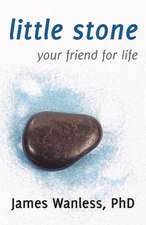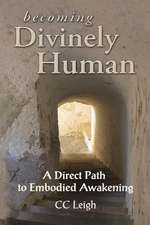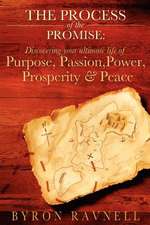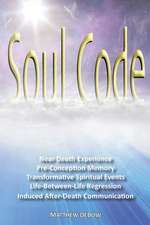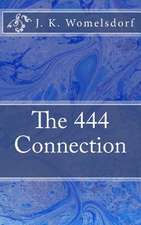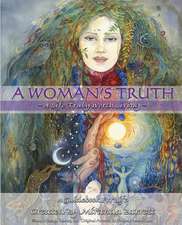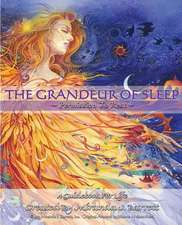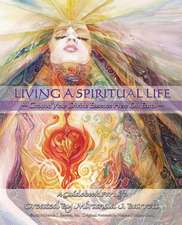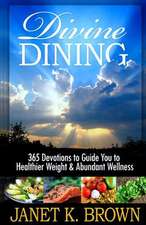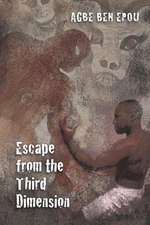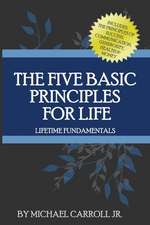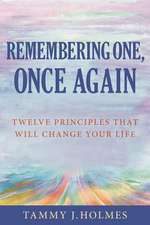Tao: The Pathless Path
Autor Oshoen Limba Engleză Paperback – 31 ian 2002
In his commentaries on five parables from the Leih Tzu, Osho brings a fresh and contemporary interpretation to the ancient wisdom of Tao. Leih Tzu was a well-known Taoist master in the fourth century B.C., and his sly critiques of a Confucius provide abundant opportunities for the reader to explore the contrasts between the rational and irrational, the male and female, the structured and the spontaneous.
"Who Is Really Happy" uses the discovery of a human skull on the roadside to probe into the question of immortality and how misery arises out of the existence of the ego.
"A Man Who Knows How to Console Himself" looks beneath the apparent cheerfulness of a wandering monk and asks if there is really a happiness that endures through life's ups and downs.
"No Regrets" is a parable about the difference between the knowledge that is gathered from the outside and the "knowing" that arises from within.
"No Rest for the Living" uses a dialogue between a despondent seeker and his master to reveal the limits of philosophy and the crippling consequences of living for the sake of some future goal.
"Best Be Still, Best Be Empty" discusses the difference between the path of the will, the via affirmitiva of Christianity, Judaism, and Islam, versus the path of the mystic, the via negativa of Buddha and Lao Tzu.
A Q&A section addresses how Taoist understanding applies to everyday life in concrete, practical terms.
"Who Is Really Happy" uses the discovery of a human skull on the roadside to probe into the question of immortality and how misery arises out of the existence of the ego.
"A Man Who Knows How to Console Himself" looks beneath the apparent cheerfulness of a wandering monk and asks if there is really a happiness that endures through life's ups and downs.
"No Regrets" is a parable about the difference between the knowledge that is gathered from the outside and the "knowing" that arises from within.
"No Rest for the Living" uses a dialogue between a despondent seeker and his master to reveal the limits of philosophy and the crippling consequences of living for the sake of some future goal.
"Best Be Still, Best Be Empty" discusses the difference between the path of the will, the via affirmitiva of Christianity, Judaism, and Islam, versus the path of the mystic, the via negativa of Buddha and Lao Tzu.
A Q&A section addresses how Taoist understanding applies to everyday life in concrete, practical terms.
In his commentaries on five parables from the Leih Tzu, Osho brings a fresh and contemporary interpretation to the ancient wisdom of Tao. Leih Tzu was a well-known Taoist master in the fourth century B.C., and his sly critiques of a Confucius provide abundant opportunities for the reader to explore the contrasts between the rational and irrational, the male and female, the structured and the spontaneous.
"Who Is Really Happy" uses the discovery of a human skull on the roadside to probe into the question of immortality and how misery arises out of the existence of the ego.
"A Man Who Knows How to Console Himself" looks beneath the apparent cheerfulness of a wandering monk and asks if there is really a happiness that endures through life's ups and downs.
"No Regrets" is a parable about the difference between the knowledge that is gathered from the outside and the "knowing" that arises from within.
"No Rest for the Living" uses a dialogue between a despondent seeker and his master to reveal the limits of philosophy and the crippling consequences of living for the sake of some future goal.
"Best Be Still, Best Be Empty" discusses the difference between the path of the will, the via affirmitiva of Christianity, Judaism, and Islam, versus the path of the mystic, the via negativa of Buddha and Lao Tzu.
A Q&A section addresses how Taoist understanding applies to everyday life in concrete, practical terms.
"Who Is Really Happy" uses the discovery of a human skull on the roadside to probe into the question of immortality and how misery arises out of the existence of the ego.
"A Man Who Knows How to Console Himself" looks beneath the apparent cheerfulness of a wandering monk and asks if there is really a happiness that endures through life's ups and downs.
"No Regrets" is a parable about the difference between the knowledge that is gathered from the outside and the "knowing" that arises from within.
"No Rest for the Living" uses a dialogue between a despondent seeker and his master to reveal the limits of philosophy and the crippling consequences of living for the sake of some future goal.
"Best Be Still, Best Be Empty" discusses the difference between the path of the will, the via affirmitiva of Christianity, Judaism, and Islam, versus the path of the mystic, the via negativa of Buddha and Lao Tzu.
A Q&A section addresses how Taoist understanding applies to everyday life in concrete, practical terms.
Preț: 90.91 lei
Nou
Puncte Express: 136
Preț estimativ în valută:
17.40€ • 18.14$ • 14.46£
17.40€ • 18.14$ • 14.46£
Carte tipărită la comandă
Livrare economică 20 martie-03 aprilie
Preluare comenzi: 021 569.72.76
Specificații
ISBN-13: 9781580632256
ISBN-10: 1580632254
Pagini: 181
Dimensiuni: 140 x 213 x 15 mm
Greutate: 0.23 kg
Ediția:1
Editura: Renaissance Books
ISBN-10: 1580632254
Pagini: 181
Dimensiuni: 140 x 213 x 15 mm
Greutate: 0.23 kg
Ediția:1
Editura: Renaissance Books
Notă biografică
Osho is one of the best-known and most provacative spiritual teacher of the twentieth century. Beginning in the 1970s he captured the attention of young people from the West who wanted to experience meditation and transformation. More than a decade after this death in 1990, the influence of his teachings continues to expand, reaching seekers of all ages in virtually every country of the world.



